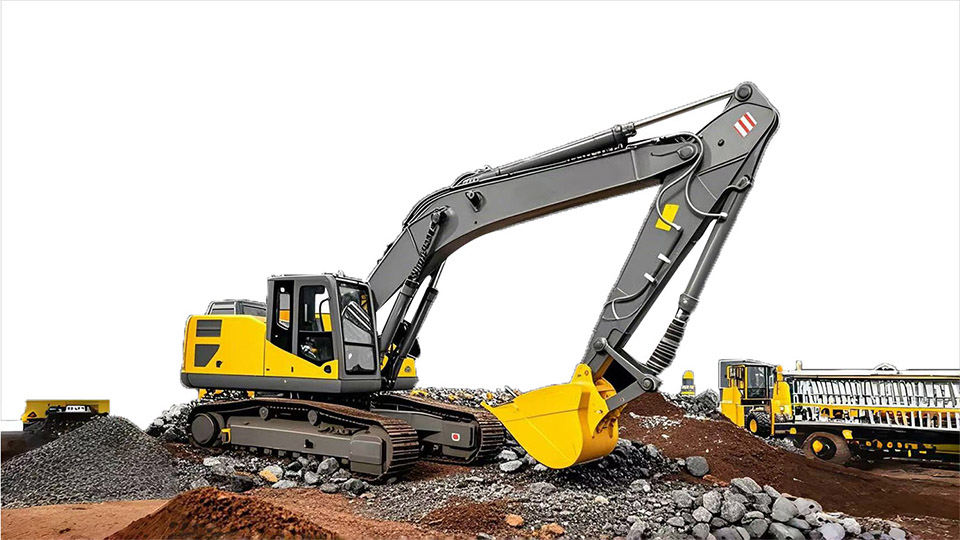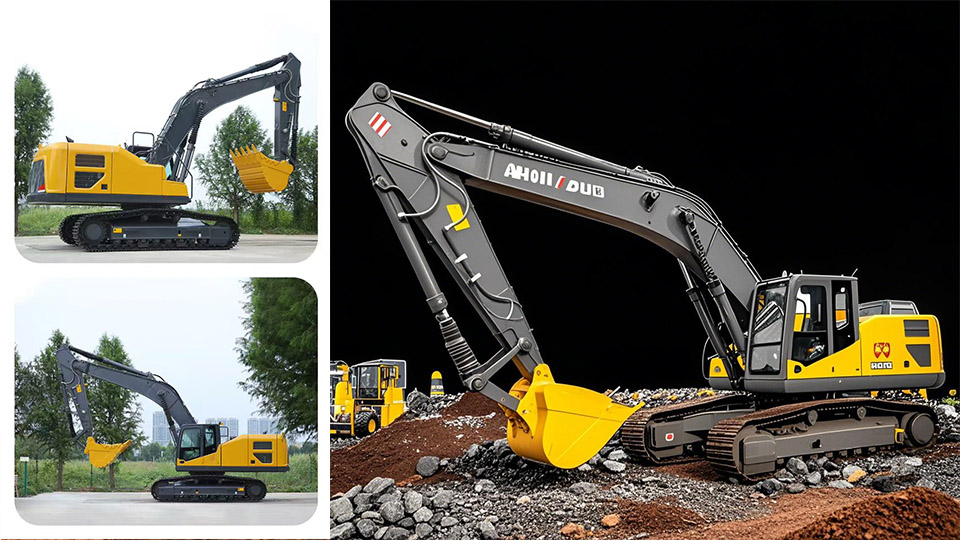Digging Deeper: A Comprehensive Guide to Finding Mini Excavator Rentals
Mini excavators have become indispensable workhorses for a vast array of tasks, offering a potent combination of power and maneuverability in a compact form. Whether you're a homeowner tackling a landscaping project, a contractor working on utilities, or a large construction firm needing a nimble machine for confined spaces, renting a mini excavator provides a flexible and cost-effective solution. However, the sheer number of rental options available can be overwhelming. This technical article will serve as a comprehensive guide to navigating the mini excavator rental landscape, highlighting the best places to find the right machine for your specific needs, along with key considerations to ensure a successful rental experience.
Understanding Your Needs: The Compass for Your Rental Journey
Before exploring rental locations, it's paramount to clearly define your project requirements. This detailed understanding will act as your compass, guiding you towards the most suitable rental provider and machine. Key factors to consider include:
Size and Weight Class: Mini excavators range from under one ton to around ten tons. Smaller models (under 3 tons) excel in tight spaces and residential work, while larger ones offer greater digging depth and power for more demanding tasks. Determine the necessary digging depth, reach, and lifting capacity for your project.
Tail Swing Configuration: Choose between conventional, zero tail swing (ZTS), or minimal tail swing based on your job site's space constraints and safety requirements. ZTS models are crucial for working alongside walls and in congested areas.
Track Type: Rubber tracks minimize damage to lawns and paved surfaces, while steel tracks provide superior traction on rough terrain. Consider the primary operating surface.
Attachment Requirements: Beyond the standard bucket, you might need augers, hydraulic breakers, grapples, or thumbs. Confirm the availability and cost of these attachments.
Rental Duration: Estimate the rental period accurately (daily, weekly, monthly) as this significantly impacts pricing. Longer rentals often yield lower per-day rates.
Budget: Establish a clear budget for the rental, including the machine, attachments, delivery, insurance, and potential fees.

Transportation: Determine how you will transport the excavator. Smaller models can be towed, while larger ones require professional transport.
The Top Tier: Leading National Equipment Rental Companies
For their vast fleets, extensive networks, and often newer equipment, national equipment rental companies are a strong starting point for many mini excavator rentals:
United Rentals: As the largest equipment rental company globally, United Rentals boasts a significant inventory of mini excavators from reputable manufacturers like Bobcat and Takeuchi. They offer a wide range of sizes, from compact models for weight-restricted sites to larger ones for more substantial excavation. Their online platform and mobile app facilitate easy browsing and booking. They also provide various attachments and have established service and support.
Sunbelt Rentals: The second-largest player in the US market, Sunbelt Rentals also maintains a substantial fleet of mini excavators suitable for residential, landscaping, and utility work. They emphasize efficiency in tight spaces and offer attachments like augers. Their online presence and extensive network of locations make them a convenient option.
Herc Rentals: Herc Rentals is another leading provider with a diverse fleet of earthmoving equipment, including mini excavators. They cater to a broad range of industries and offer various rental durations and equipment specifications. Their focus on well-maintained equipment and customer service makes them a reliable choice.
The Local Advantage: Regional and Independent Rental Companies
While national companies offer breadth, regional and local equipment rental companies often provide distinct advantages:
Competitive Pricing: Local companies may have lower overhead costs, allowing them to offer more competitive rental rates.
Personalized Service: Smaller operations often prioritize building strong customer relationships, leading to more attentive and tailored service.
Local Expertise: They possess a deeper understanding of the local terrain, regulations, and specific needs of contractors and homeowners in the area.
Flexible Terms: Independent companies might be more willing to negotiate rental terms and accommodate specific requests.
Community Support: Renting locally supports small businesses within your community.
The Retail Route: Convenience at Big Box Stores
Home improvement retail giants like The Home Depot also offer mini excavator rentals, primarily catering to smaller projects and DIY enthusiasts:
The Home Depot Rental: Their rental centers typically stock smaller mini excavators (often in the 1-ton range) suitable for property improvement, landscaping, irrigation installation, and basic plumbing or electrical repairs. They offer convenient daily and weekly rates and a familiar rental process.
The Digital Marketplace: Online Equipment Rental Platforms
Online equipment rental marketplaces act as aggregators, connecting renters with a wide network of suppliers:
DOZR: This platform allows you to search and compare rental rates from various suppliers in your area for mini excavators of different sizes and specifications. It streamlines the process of finding the best deal and availability.
BigRentz: Similar to DOZR, BigRentz offers a comprehensive online marketplace for renting mini excavators and other heavy equipment. They source from a network of suppliers to provide competitive rates and a wide selection.
KWIPPED: KWIPPED focuses on connecting businesses with equipment financing and rental solutions. Their platform allows you to request quotes from multiple rental companies for mini excavators.
Peer-to-Peer Rentals: An Emerging Option (Use with Caution)
While less established for heavy equipment like mini excavators, some peer-to-peer rental platforms might exist, allowing individuals or businesses to rent directly from each other. However, exercise caution with this option, ensuring proper insurance, maintenance records, and equipment condition are verified.
Key Considerations for Choosing a Rental Location:
Beyond the type of rental provider, several factors should influence your final decision:
Proximity: Renting from a location close to your job site can minimize delivery and pickup costs and ensure quicker access to support if needed.
Equipment Availability: Confirm that the specific size and type of mini excavator you require is available for your desired rental dates. Booking in advance is often recommended, especially during peak seasons.
Pricing Transparency: Ensure the rental quote clearly outlines all costs, including the base rental rate, attachment fees, delivery/pickup charges, insurance, and taxes.
Equipment Condition and Maintenance: Inquire about the age and maintenance schedule of the equipment. A well-maintained machine is crucial for safety and reliability.
Customer Service and Support: Choose a provider known for responsive customer service and readily available technical support in case of issues.
Insurance Options: Understand the insurance coverage provided by the rental company and determine if you need additional coverage based on your project and risk assessment.
Delivery and Pickup Services: If you don't have the means to transport the excavator yourself, inquire about the rental company's delivery and pickup services and associated costs.
Contract Terms and Conditions: Carefully review the rental agreement, paying attention to liability clauses, damage policies, and cancellation terms.

The Importance of Asking the Right Questions:
When contacting potential rental providers, be sure to ask specific questions to ensure the machine meets your needs and the rental terms are favorable:
What is the exact make and model of the mini excavator?
What is its operating weight, digging depth, and reach?
What attachments are available and at what cost?
What are the rental rates for my desired duration?
What are the delivery and pickup fees?
What insurance options are available?
What is the procedure for reporting breakdowns or requiring service?
Can I inspect the equipment before renting?
Conclusion: Digging Up the Best Rental Option
Finding the best place to rent a mini excavator involves a combination of research, clear understanding of your needs, and careful consideration of various rental providers. National companies offer extensive fleets and wide availability, while local companies may provide more competitive pricing and personalized service. Online marketplaces offer convenience for comparison, and even retail stores cater to smaller projects. By considering factors like equipment availability, pricing transparency, customer service, and transportation options, and by asking the right questions, you can confidently navigate the rental landscape and secure the perfect mini excavator to power your project efficiently and effectively. Remember that the "best" place ultimately depends on your individual requirements, budget, and location, so a thorough evaluation of your options is key to a successful rental experience.
Post time:Sep-25-2020
